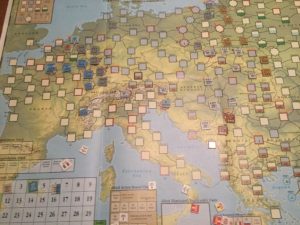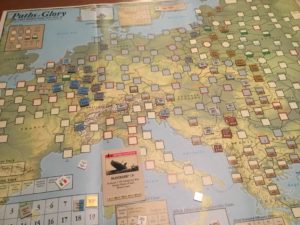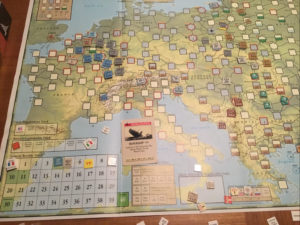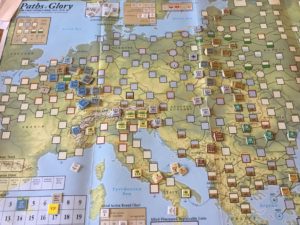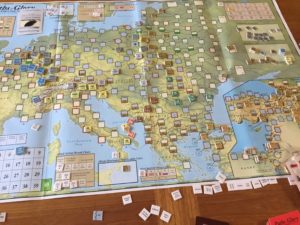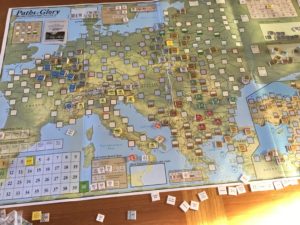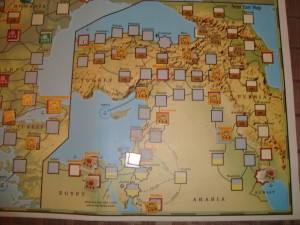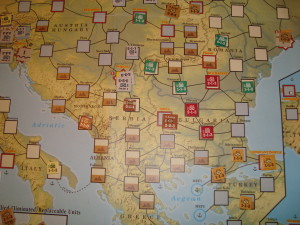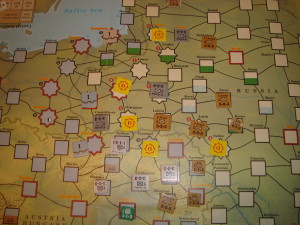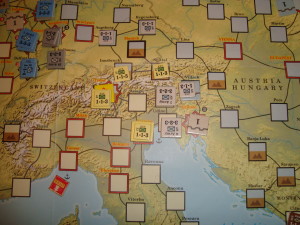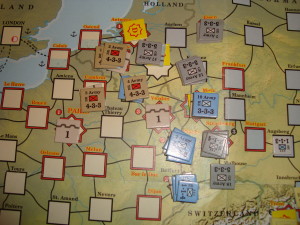That’s Paths of Glory (POG) for Tim and I Rules are easy to remember, play is pretty quick, and it is always a tense struggle. The perfect game when football, beer or just plain sloth renders Europa, Third World War or Pursuit of Glory (POG’s demonic brother) too difficult.
Our latest game was right before Thanksgiving. Tim took the Allies and I had the Central Powers.
In our past games, Tim’s Allied play has always featured the Russians’ rude handling of the Hapless Hapsburgs. This time, I was determined not to let the Austrians lose the game. This would involved a cautious approach on the Western Front, with German reinforcements moving to the East.
Standard opening for the August 1914 first game turn. I played the Liege card but not much else.
The Russian Steamroller gathered speed during the September 1914 turn. I was forced to funnel what few reinforcements I had East to stave off Tim’s hordes. He also started his War Status track moving by playing the Blockade card.
In the Fall 1914 turn, Tim continued to hammer away at the Austrians in the East, while my activities focused on patching together a defensive line, and entrenching in the West.
During the Winter 1915 turn, the Austrians came under new pressure from the Southeast. The Serbs launched a local attack that eliminated an Austrian Corps, and Romania’s entry into the war forced the Austrians to divert units. The Austrian Eastern front was now buttressed by four German units.
The Italians entered the war during the Spring 1915 turn. Fortunately, the Austrians finally drew reinforcement cards allowing them to stop the Italian offensive south of Vienna and continue to frustrate the Russians, with heavy see-saw fighting around Warsaw.
While the situation remained the same in the East, Turkey’s entry into the war during Summer 1915 created new problems for the Central Powers. As luck would have it, the Ottomans had a mandated offensive that resulted in defeat and opportunites for the Russians and British.
The Central Powers used Bulgaria’s entry into the war to pressure the Romanians and Serbs. Both the East and West fronts had stabilized, but the British had mustered a force off of Gallipoli.
At this point, we shut down the game. The prospects for a dramatic breakthrough by either side were bleak, and, more importantly, food and football beckoned.
While the map indicates a relatively “even” situation for both sides, I believe Tim’s Allies had an advantage for two reasons. First, the Central Powers had gained very few victory points in the East. These are needed to start the Russians on the road to revolution and disintegration. Secondly, there was a very possibility of a successful British landing at Gallipoli.
Another fun contest…….
